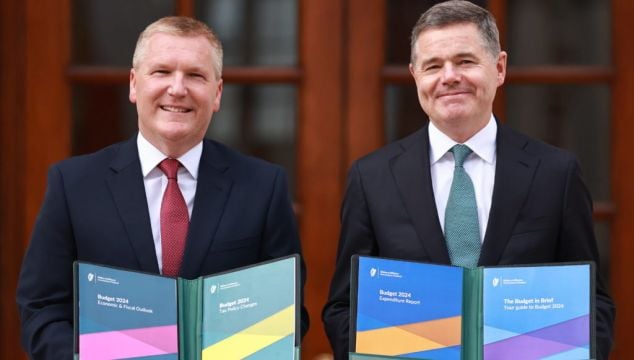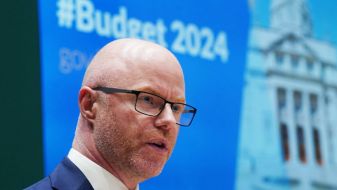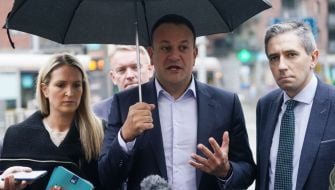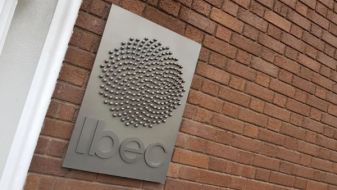The Government has unveiled a €14 billion budget package it insists balances the needs of today with the future wellbeing of the economy.
Minister for Finance Michael McGrath said Budget 2024 was framed against a backdrop of “global uncertainty”.
The package agreed by the Fianna Fáil, Fine Gael and Green Party coalition in Dublin includes a €5.27 billion increase in public spending.
The budget also includes €4.76 billion of non-core funding to respond to exceptional circumstances, including the humanitarian response to the war in Ukraine; €1.16 billion on tax measures; a further €444 million in temporary tax measures; €1.4 billion for one-off cost-of-living supports; and €900 million on energy credits for households.
Mr McGrath also announced two new funds that will use the State's multi-billion euro windfall from corporation tax receipts, mostly derived from multinational companies, to invest in future priorities, including support for the response to climate change.
“The annual budget is about setting out how we can help with the needs of today, but it also has to be about planning for the next 10, 20, 30 years,” the Minister told the Dáil.
The budget includes a one-year tax relief on mortgage interest payments. The relief for those affected by soaring rates in the last 12 months will be capped at €1,250 per property.
The Government estimates that the measure will benefit 165,000 mortgage holders at a cost of €125 million.
Among the once-off cost-of-living supports are three electricity credits worth €450; a winter fuel allowance lump sum of €300; a €200 winter living alone allowance; a Christmas bonus for welfare recipients; and €250 million in one-off business supports.
There will be a €12 increase in the weekly social welfare rate for working age recipients and a €12 increase in weekly payments for pensioners.
In tax policy, the standard rate cut-off point for income tax has increased by €2,000, meaning people will start paying the highest tax rate at €42,000.
The rent tax credit has been increased to €750.
Mr McGrath said a temporary tax relief to benefit small landlords would also be introduced.
This would see rental income of €3,000 for 2024, €4,000 for 2025, and €5,000 for 2026 and 2027 disregarded at the standard rate – as long as landlords stay in the market for that full four-year period.
There is also a reduction in the middle rate of the Universal Social Charge (USC), a controversial tax introduced after the financial crisis, from 4.5 per cent to 4 per cent.
The budget included a 0.1 per cent increase in PRSI (Pay Related Social Insurance) contribution rates from October 1st next year.
There was a 75 cent increase in excise duty and VAT on a pack of 20 cigarettes.
In expenditure, the Government announced funding to recruit 1,000 more gardaí and 250 civilian staff.
A scheme which provides for free school books has been extended to include the Junior Cycle of secondary school.
Child benefit will be extended for 18-year-olds who are still in full-time, secondary education.
There will be €1 billion provided for the development and renewal of the roads network, and “€1 million per day” invested in cycling and walking infrastructure.
The €4.76 billion for “exceptional challenges” includes €2.5 billion for measures like education, welfare payments and accommodation for Ukrainian refugees; €1.3 billion for the ongoing Covid-19 response in Ireland; and €700 million for other responsive provisions under by the National Recovery and Resilience Plan.
Minister for Public Expenditure Paschal Donohoe said recent budgets had been defined by global challenges, including climate change and the threat of violence around the world.
He said those challenges could have caused “long-lasting harm” to the economy.
He said the reason they had not was because the public finances had gradually been returned to health, from deficit to balance to surplus.
“This budget continues that approach,” he said. “Not spending every cent today; leaving some aside for tomorrow. Helping with the cost of living, but changing that help as inflation slows.”
He said the Government was spending more on public services and building more homes, more schools and better public transport. But he said that was not based on spending money “we may not always have”, referencing the windfall corporation tax receipts.
“This is why this budget will help with the cost of living, will help with better public services and will give more children a better start to life,” he added.







